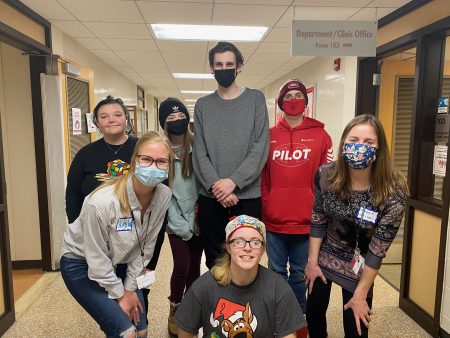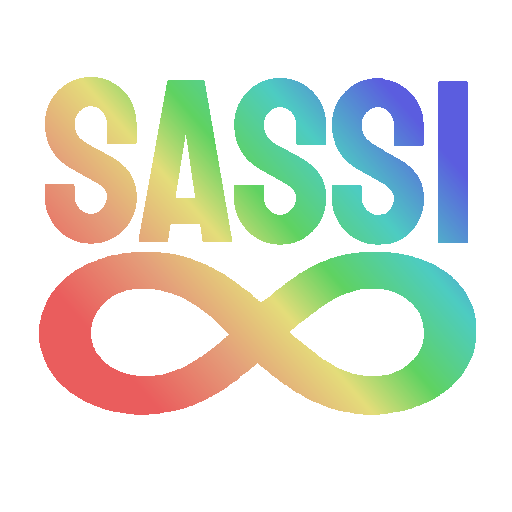A new initiative is helping students with autism at St. Cloud State University find success and helping professors learn about the condition to better serve their students.
The Supporting Autistic Students Success Initiative (SASSI) is offering students with autism a place to meet and share with one another and learn about support services available at St. Cloud State. It is also educating faculty and staff about strategies to best serve their students, even when they don’t disclose their diagnosis.

Luke Jarchow is serving as SASSI’s first student worker. He is helping to bridge the gap between neurodivirgent students and faculty members by serving as a mentor to other students and on panels to inform faculty and staff about the academic strengths and challenges of autistic students.
SASSI is supported by a $25,000 Minnesota State Educational Innovations Grant and led by Communication Sciences and Disorders faculty members Dr. Theresa Estrem and Dr. Rebecca Crowell. The initiative is needed because graduation rates for students with autism and other neurodivergencies often lag neurotypical students. The data and information gleaned from their efforts will help inform best practices in serving the academic and non-academic needs of autistic students at St. Cloud State and throughout the Minnesota State system.
This spring SASSI was featured on the MINNovation podcast, participated in Accessibility Awareness Week activities in February and participated in a College of Health and Wellness Professionals forum on invisible disabilities in March.
“There’s nobody in our region doing this work. Out of 700 higher education institutions in the United States, only about 50 offer support for autistic students,” Estrem said. “St. Cloud State is the only institution in the region doing this work and is innovating this program within the Minnesota State system.”
Autistic students have the academic skills needed to go to college, but many students with autism have difficulty with executive functions, Estrem said.

Executive functions are things like planning and organizing and keeping track of details about what needs to happen when. In high school, students with autism generally get supports and accommodations from teacher and other educators along with support from their parents.
“But when they get to college, they have to initiative all of the accommodations, all of the supports,” Estrem said. “They have to be really advocating for themselves, and some students are great at advocating for themselves, but many student haven’t needed to do that.”
St. Cloud State and other institutions offer services, but students don’t always know what they are or to ask for them.
The initiative informs students about the services available to them and holds group meetings each week for students with autism led by Communication Sciences and Disorders and Counseling graduate students along with graduate students, some of whom are neurodivergent.
The group is the Neuro Network and strives to create an environment that is comfortable and welcoming for the autistic students where they can be themselves, ask questions and support one another and socialize. They discuss social communication, executive function and coping strategies, which can be challenging for many autistic students, Estrem said.
Their work is being informed by the students with autism themselves along with neurodivergent faculty members. Part of the goal for success is including students with autism in the development and running of the initiative and its support systems. That includes hiring student workers and graduate assistants with autism, Estrem said.
Jarchow, who was diagnosed with autism his senior year of high school, entered St. Cloud State confident in his ability to communicate and succeed in college. He is graduating in Film Studies in fall, and is excited to use his experiences and knowledge to help SASSI get started as a resource for other students.
He is mentoring students in SASSI’s Neuro Network Student Group and making suggestions about how the initiative can best serve students. When the group started in fall, he encouraged Estrem and Crowell to use Discord as a place for students involved to connect with one another since it is used by many students already for gaming.
“My desire to make sure that SASSI is a self-perpetuating thing that continues in the future … that it just always exists,” he said.
